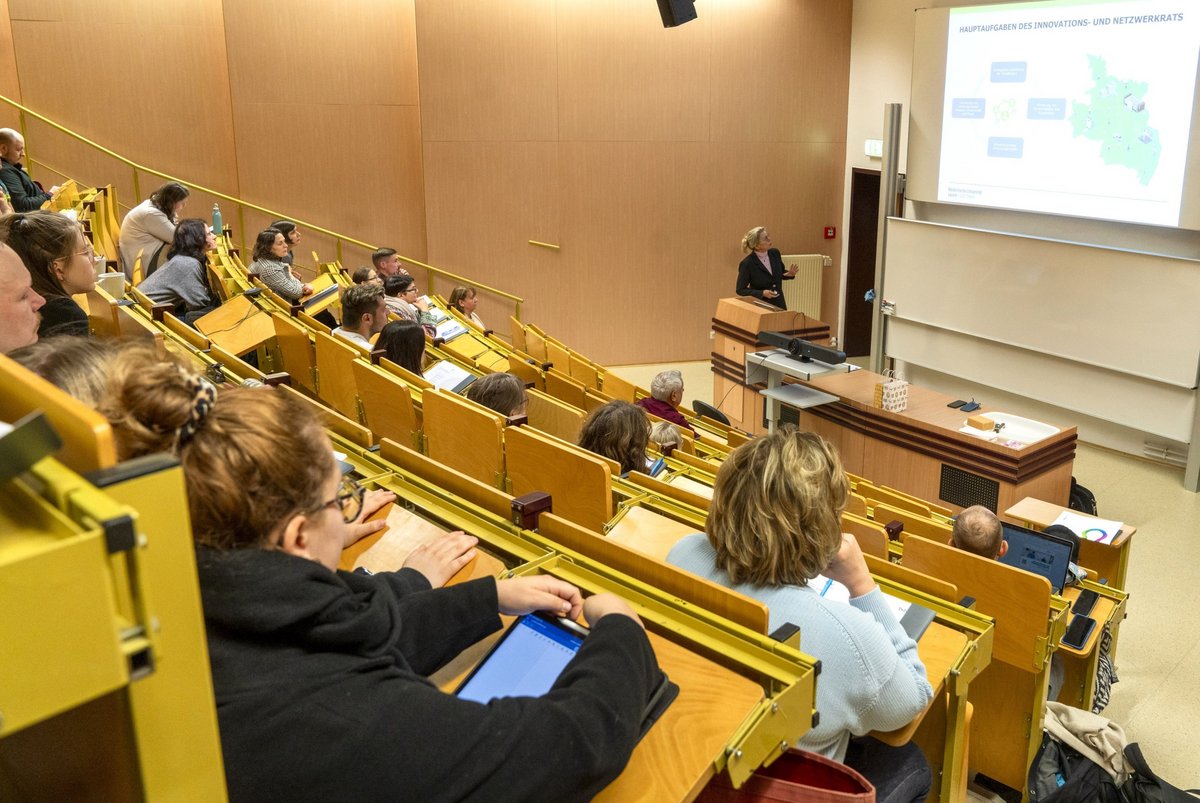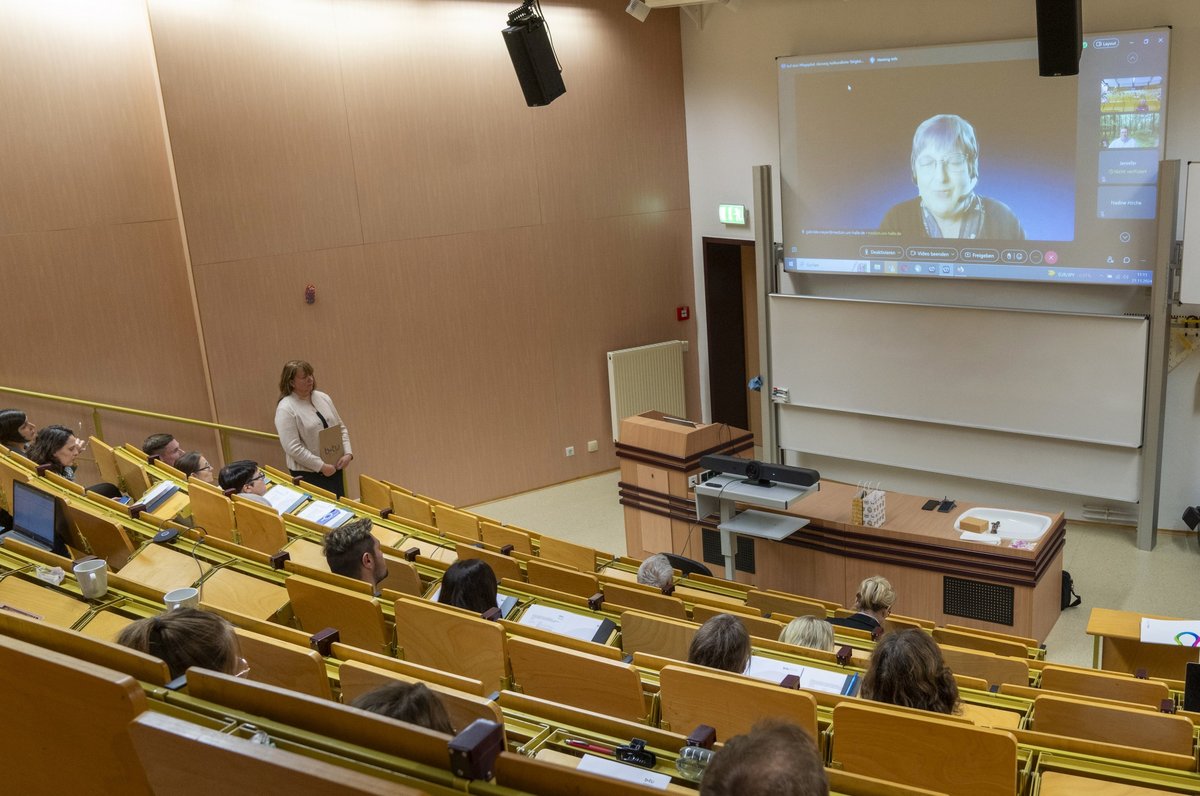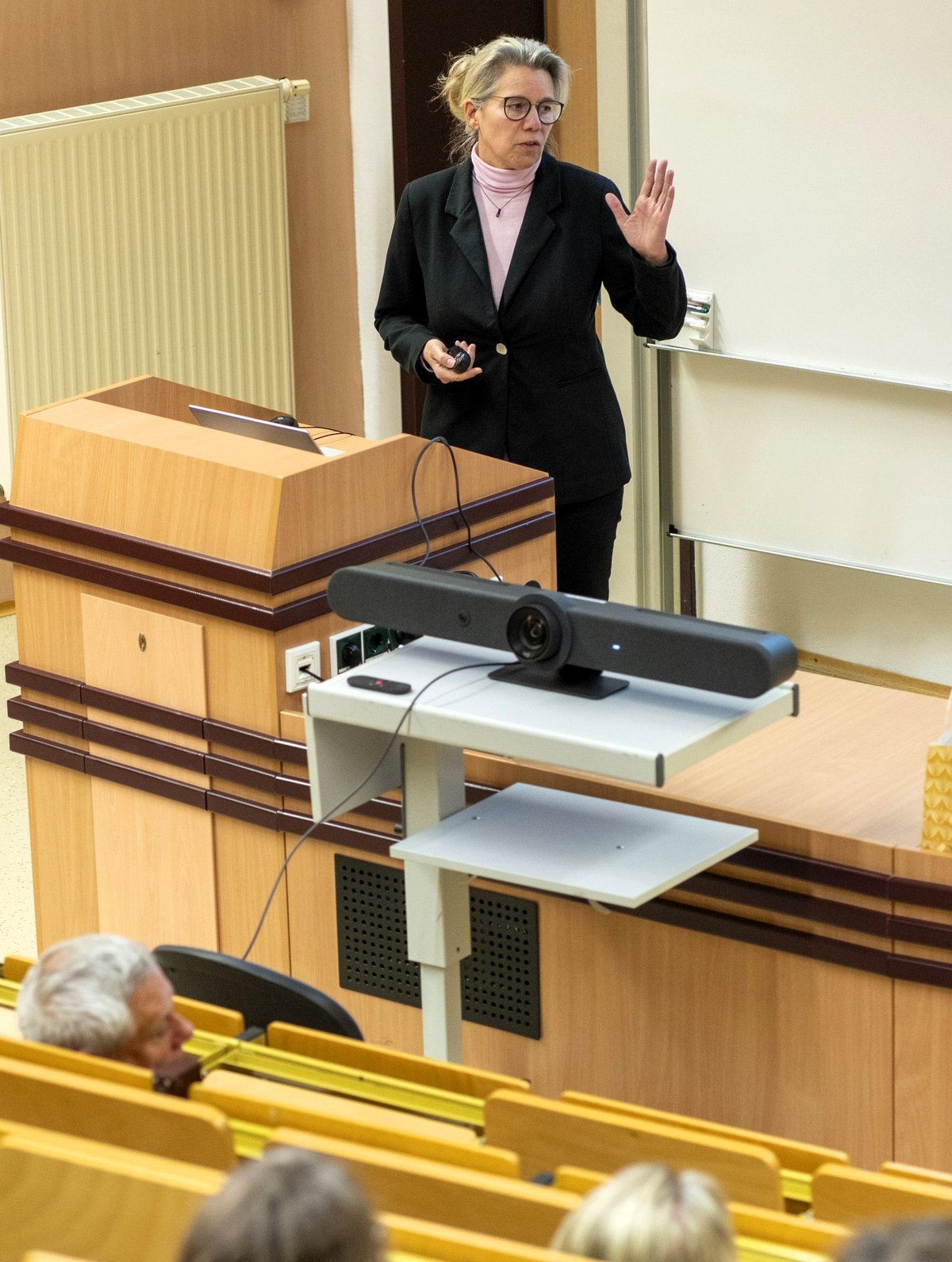Impulses for the development of Nursing Science
Professor Christian Kopkow, Vice-Dean of the Faculty of Human Sciences in Senftenberg, and Jeannette Jänchen, Head of the Department of Teaching and Learning in Professional Practice, welcomed participants to the annual forum on 21 November 2021. By way of introduction, they referred to its intentions at the Konrad Zuse Media Centre: Setting key points in research, networking and promoting young scientists.
A path is defined as a route without edges and node repetitions, which serves to determine a position and along which signs are strung together. In the programme, the contributions of actors from action research were lined up in order to walk the path of care together with other participants. Dr Gero Langefrom the Faculty of Medicine at Martin Luther University Halle-Wittenberg (MLU) , who presented the Nursing Science study programme based there, was one of the experts from the nursing context. The MLU was and is the first and only university to integrate healthcare-related activities into the eight-semester degree programme since 2016.
Professor Gabriele Meyer, Head of the Institute of Health and Nursing Science Halle-Wittenberg , followed up with general discourse-specific elements of the nursing profession. Among other things, she drew attention to the fact that there is currently no faculty for Nursing Science in Germany. This sign of the non-existent nursing-specific faculty in the nursing pathway is linked to the basic academic structure of care.
Andrea Stewig-Nitschke, Head of Nursing at the Medical University of Lausitz-Carl Thiem, focussed on the implementation of curative activities in an interprofessional context at the university hospital. An academic framework concept needs to be rolled out.
Johannes Wünscher, Chairman of the German Professional Association for Nursing Professions North-East, provided a further link in the nursing policy discourse. He emphasised that 68 percent of carers would like to see their skills expanded and 78 percent of them are willing to take on more responsibility. And it was precisely these responsibilities that were the thematic centres of the subsequent workshops.
The deputy speaker of the German Society for Nursing Science,Professor Thomas Boggatz, worked with the participants to develop strategies for practice development in nursing: carers as a direct part of the change process. "Because something is coming our way", as was already teased out in the second workshop. The study programme coordinator of the Protestant University of Applied Sciences Dresden (ehs), Victoria Schmidt, unfolded the concentrated nursing expertise with the participants, which can "only" be passed on by the nurses themselves.
The panel underlined the framework, so that the intentions emphasised at the beginning of the expert forum with regard to research, networking and the promotion of young scientists resonated.
"With 50 participants from the regional environment, it was an enriching discourse that encouraged us to look to the present and the future," emphasised Jeannette Jänchen and Anja Herzog from the Department of Teaching and Learning in Professional Practice. Thanks are due to the Young Nurses of the German Professional Association for Nursing Professions (DBfK) North-East, of which Barbara Kedzia and Grit Smerda from the Senftenberg nursing support centre took part with a stand. We would also like to thank the Nursing Science team who were directly involved."
To the Institute of Health at BTU:
https://www.b-tu.de/institut-gesundheit
About the Nursing Science study programme:
https://www.b-tu.de/pflegewissenschaft-bs-fh
Press contact
Ralf-Peter Witzmann
Communication and Marketing
T +49 (0) 3573 85-283
ralf-peter.witzmann(at)b-tu.de
Contact us
Abteilung für Lehren und Lernen in der Berufspraxis
T +49 (0) 3573 85-723
jeannette.jaenchen(at)b-tu.de
Abteilung für Lehren und Lernen in der Berufspraxis
T +49 (0) 3573 85-786
anja.herzog(at)b-tu.de




